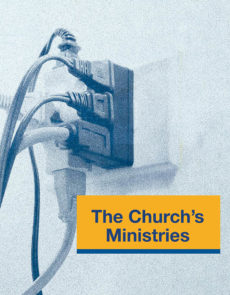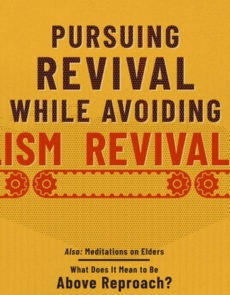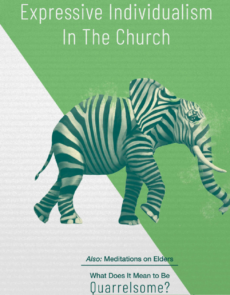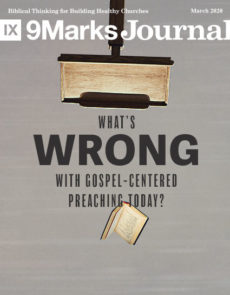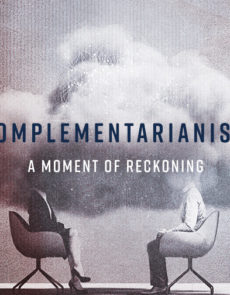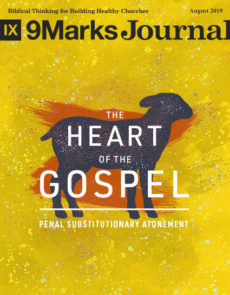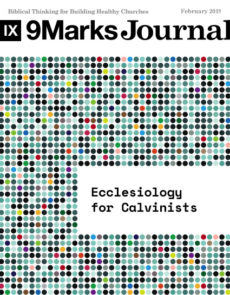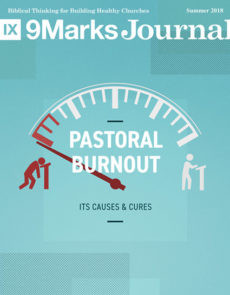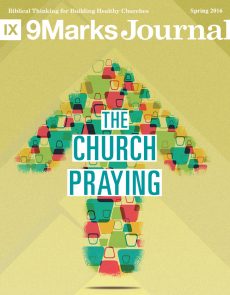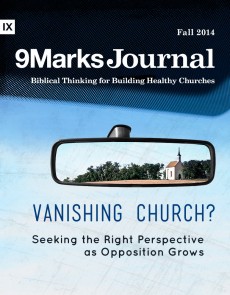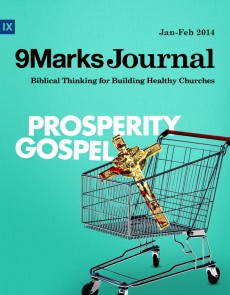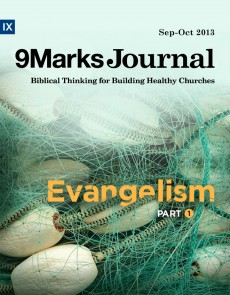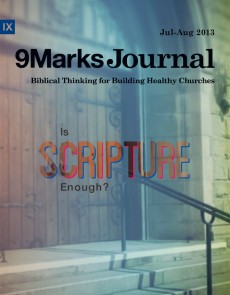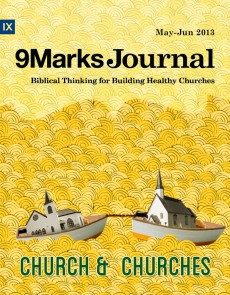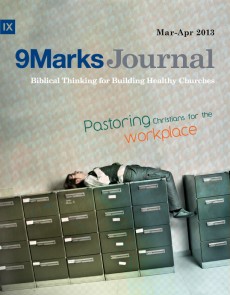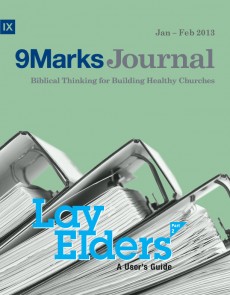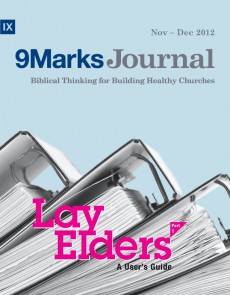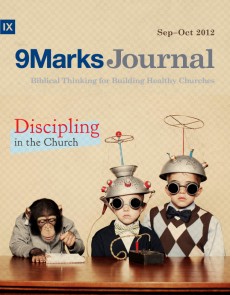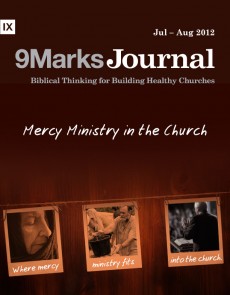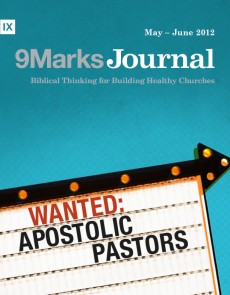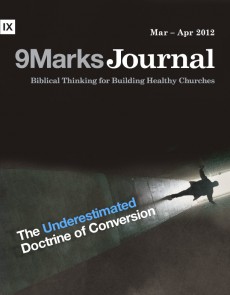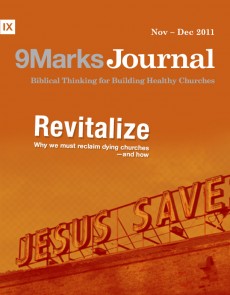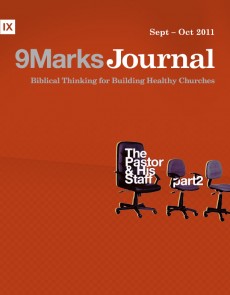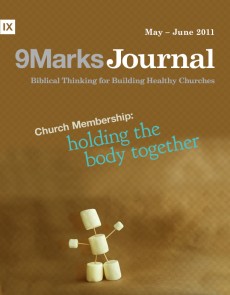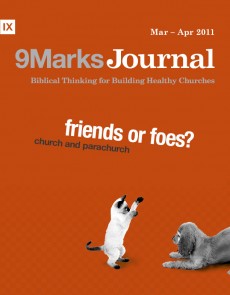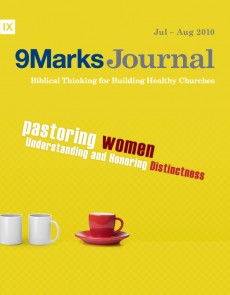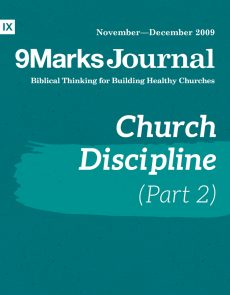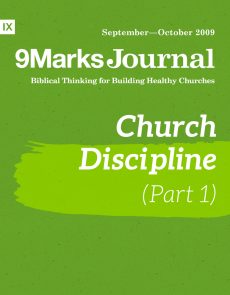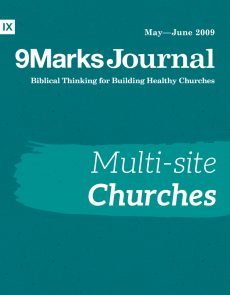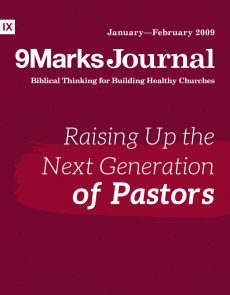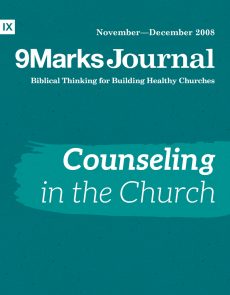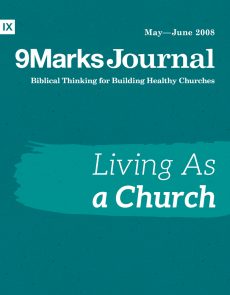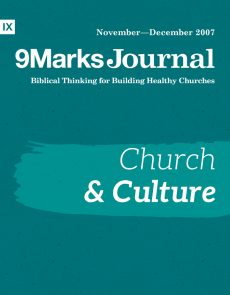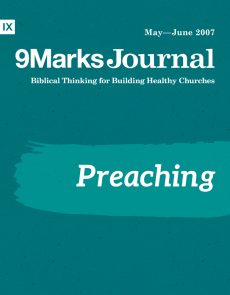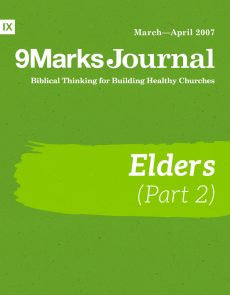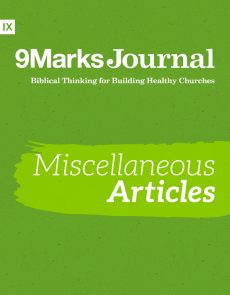Complementarianism In The Pulpit

Complementarianism as a Worldview
By Owen Strachan | 9Marks Journal: Complementarianism & the Local Church | 03.19.2015Complementarianism has explanatory power on a range of major, life-shaping matters. But more than this, it has apologetic power, both in the living of this doctrine, and the speaking.

Why Complementarianism Is Crucial to Discipleship
By Jonathan Leeman | 9Marks Journal: Complementarianism & the Local Church | 03.18.2015You can maintain belief in the gospel apart from a complementarian conception of discipleship, but your vision of discipleship will work against such belief, not for it.

Discipling Guys
By Andy Davis | 9Marks Journal: Complementarianism & the Local Church | 03.10.2015Boys don’t enter the world knowing how to be godly men. They have to be trained.

Counsel for a Complementarian Pastor
By Jen Wilkin | 9Marks Journal: Complementarianism & the Local Church | 03.02.2015It’s a pastor’s privilege to cultivate a discipleship vision for every woman in his church. But how do you do it?

Complementarianism and the Next Generation
By Daniel Schreiner | 9Marks Journal: Complementarianism & the Local Church | 02.25.2015Most millennials have never heard of complementarianism. So how do we teach and model it to them well?

The Egalitarian Impulse in the Black Church
By Steven Harris | 9Marks Journal: Complementarianism & the Local Church | 03.12.2015This present problem of gender roles in the black church is rooted in past pain.

Four Truths About Complementarian Marriage
By Gavin Peacock | 9Marks Journal: Complementarianism & the Local Church | 03.17.2015Here are four biblical truths pastors should teach with respect to marriage, manhood, and womanhood, not just for the sake of marriage, but for the sake of the gospel.

Pastors’ Forum: How do you equip women in your church for ministry?
By B. Johnson, D. Furman, G. Conner, J. Rinne, J. Sanchez, M. McConnell, M. McKinley, P. Martin, R. Fullerton, T. Mercer | 9Marks Journal: Complementarianism & the Local Church | 03.19.2015How do you equip women in your church for ministry?
Complementarianism In The Pews

From Lesbianism to Complementarianism
By Jackie Hill-Perry | 9Marks Journal: Complementarianism & the Local Church | 03.11.2015He was a man, and she was a woman. Similar, yet different—and she hated it.

Art, Beauty, and Complementarianism
By DW | 9Marks Journal: Complementarianism & the Local Church | 02.24.2015The primeval account of the first man and woman has long inspired artists because the Garden’s themes of God, love, desire, and sin still dominate the drama of men and women today.

Complementarianism and the Single Man
By Mathew Freeman | 9Marks Journal: Complementarianism & the Local Church | 03.03.2015Hey guys, you don’t have to be married to pursue leadership, provision, and protection.

Complementarianism and the Single Woman
By Katie Van Dyke | 9Marks Journal: Complementarianism & the Local Church | 03.09.2015Complementarianism is not just for married women. It’s for single women, too.

A Complementarian Where You Least Expect Her
By Courtney Reissig | 9Marks Journal: Complementarianism & the Local Church | 03.04.2015While not all Millennial women claim to be feminist—and some may even reject the label—you would be hard-pressed to find a woman under 40 who doesn’t have some form of feminism living inside of her. I was no different.

My Journey to Complementarianism
By GraceAnna Castleberry | 9Marks Journal: Complementarianism & the Local Church | 03.19.2015You will be the first and primary example to your children of God’s intentions for marriage and family.
When Your Husband Is in the Line of Fire
By Amanda Peacock | 9Marks Journal: Complementarianism & the Local Church | 03.19.2015A man with the courage of his convictions is the kind of man others should inspire to be, and that women should delight to have by their sides.
Book Reviews

A Brief History of Complementarian Literature
By Owen Strachan | 9Marks Journal: Complementarianism & the Local Church | 03.19.2015Just as the Reformation constituted a mighty preaching and writing engine, so evangelical complementarianism has produced many millions of words that have revived and strengthened God’s church.
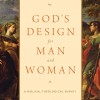
Book Review: God’s Design for Man and Woman, by Andreas and Margaret Köstenberger
Review by David Schrock | 9Marks Journal: Complementarianism & the Local Church | 02.23.2015In the last three decades there has not been a comprehensive and scholarly biblical theology of manhood and womanhood. Until now.

Book Review: The Church Planting Wife, by Christine Hoover
Review by Erin Wheeler | 9Marks Journal: Complementarianism & the Local Church | 02.02.2015Both practical and encouraging, The Churching Planting Wife is well worth the time of any wife married to a man pursuing or involved in ministry.

Free Download
PDF, ePub, and Kindle files will be sent to this email address. As part of our community, you will receive content & communication from 9Marks. You may unsubscribe at any time.
Support 9Marks
Our work is possible by the generosity of our readers. Give Today












